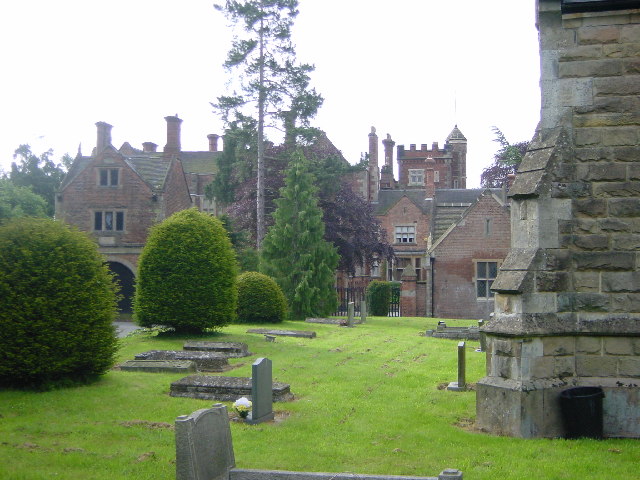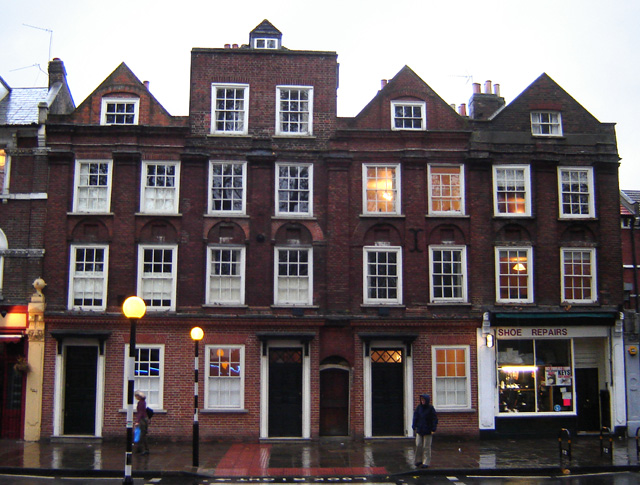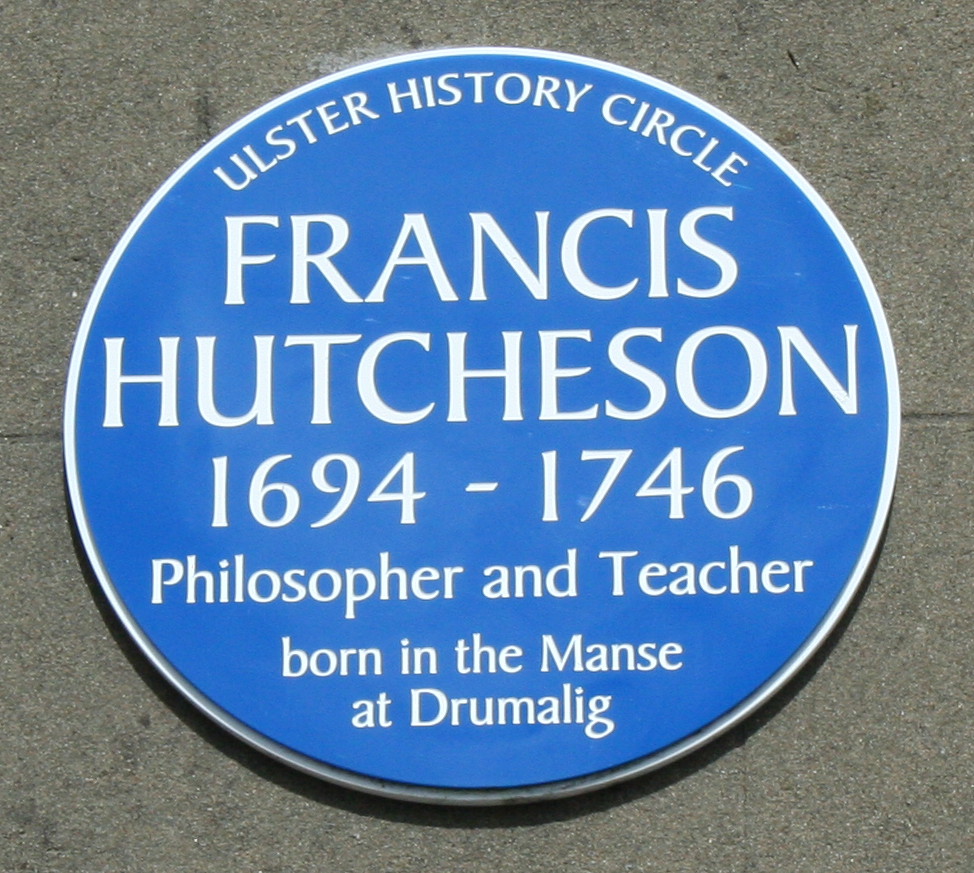|
The Religion Of Nature Delineated
The ''Religion of Nature Delineated'' is a book by Anglican cleric William Wollaston that describes a system of ethics that can be discerned without recourse to revealed religion. It was first published in 1722, two years before Wollaston's death. Due to its influence on eighteenth-century philosophy and his promotion of a natural religion, the book claims for Wollaston a ranking as one of the great British Enlightenment philosophers, along with John Locke, George Berkeley, and David Hume. It contributed to the development of two important intellectual schools: British Deism, and the pursuit of happiness moral philosophy of American Practical Idealism which appears in the United States Declaration of Independence. Argument Wollaston claimed originality for his theory that the moral evil is the practical denial of a true proposition and moral good the affirmation of it, writing that this attempt to use mathematics to create a rationalist ethics was "something never met with a ... [...More Info...] [...Related Items...] OR: [Wikipedia] [Google] [Baidu] |
William Wollaston
William Wollaston (; 26 March 165929 October 1724) was a school teacher, Church of England priest, scholar of Latin, Greek, and Hebrew, theologian, and a major Enlightenment era English philosopher. He is remembered today for one book, which he completed two years before his death: '' The Religion of Nature Delineated''. He led a cloistered life, but in terms of eighteenth-century philosophy and the concept of natural religion, he is ranked with British Enlightenment philosophers such as Locke, Berkeley, and Hume. Wollaston's work contributed to the development of two important intellectual schools: British Deism, and " the pursuit of happiness" moral philosophy of American Practical Idealism, a phrase which appears in the United States Declaration of Independence. Life Wollaston was born at Coton Clanford in Staffordshire, on 26 March 1659. He was born to a family long-established in Staffordshire, and was distantly related to Sir John Wollaston, the Alderman and Lord Mayo ... [...More Info...] [...Related Items...] OR: [Wikipedia] [Google] [Baidu] |
Utilitarianism
In ethical philosophy, utilitarianism is a family of normative ethical theories that prescribe actions that maximize happiness and well-being for all affected individuals. Although different varieties of utilitarianism admit different characterizations, the basic idea behind all of them is, in some sense, to maximize utility, which is often defined in terms of well-being or related concepts. For instance, Jeremy Bentham, the founder of utilitarianism, described ''utility'' as: That property in any object, whereby it tends to produce benefit, advantage, pleasure, good, or happiness ... rto prevent the happening of mischief, pain, evil, or unhappiness to the party whose interest is considered. Utilitarianism is a version of consequentialism, which states that the consequences of any action are the only standard of right and wrong. Unlike other forms of consequentialism, such as egoism and altruism, utilitarianism considers the interests of all sentient beings equally ... [...More Info...] [...Related Items...] OR: [Wikipedia] [Google] [Baidu] |
Barnebys
Barnebys is a search engine for art, antiques and collectibles from more than 3,000 auction houses and galleries around the world. Barnebys offers a free-to-use database of realized prices, dating back to the beginning of the 1970s and providing over forty million sold lots. Barnebys launched in Scandinavia in autumn 2011. Since 2013 Barnebys has been established in the UK, United States, France, Spain, Germany and Hong Kong, listing a range of auction houses such as Sotheby's, Christie's and Phillips. In May 2014 the Financial Times The ''Financial Times'' (''FT'') is a British daily newspaper printed in broadsheet and published digitally that focuses on business and economic current affairs. Based in London, England, the paper is owned by a Japanese holding company, Ni ... described Barnebys as one of the leading contenders in the auction world. In 2018, Barnebys acquired ValueMyStuff, founded by Patrick van der Vorst References External links * {{Official webs ... [...More Info...] [...Related Items...] OR: [Wikipedia] [Google] [Baidu] |
Thomas Law (1756–1834)
Thomas Law (October 23, 1756 – 1834), was a reformer of British policy in India, where he served as collector of revenue for the East India Company. Working with Lord Cornwallis, governor-general of India, Law formulated a major policy known as the Permanent Settlement, which served as the basis for land tenure and taxation policy for natives during subsequent decades of British rule. He returned to England for his health in 1791, taking with him his three illegitimate sons borne of his Indian mistress. Three years later, Law emigrated to the United States and soon settled in Washington, D.C., then undeveloped but designated as the national capitol. Law became a major real estate investor and developer, as well as a prominent civic leader in the developing new capital after the demise of his fortune. A widely read intellectual, he had grand visions for bringing Enlightenment ideas to bear in reshaping both colonial British India and the early American republic. He eventually bro ... [...More Info...] [...Related Items...] OR: [Wikipedia] [Google] [Baidu] |
Thomas Jefferson
Thomas Jefferson (April 13, 1743 – July 4, 1826) was an American statesman, diplomat, lawyer, architect, philosopher, and Founding Father who served as the third president of the United States from 1801 to 1809. He was previously the nation's second vice president under John Adams and the first United States secretary of state under George Washington. The principal author of the Declaration of Independence, Jefferson was a proponent of democracy, republicanism, and individual rights, motivating American colonists to break from the Kingdom of Great Britain and form a new nation. He produced formative documents and decisions at state, national, and international levels. During the American Revolution, Jefferson represented Virginia in the Continental Congress that adopted the Declaration of Independence. As a Virginia legislator, he drafted a state law for religious freedom. He served as the second Governor of Virginia from 1779 to 1781, during the Revolutionary War. In 1785 ... [...More Info...] [...Related Items...] OR: [Wikipedia] [Google] [Baidu] |
University Of Pennsylvania
The University of Pennsylvania (also known as Penn or UPenn) is a private research university in Philadelphia. It is the fourth-oldest institution of higher education in the United States and is ranked among the highest-regarded universities by numerous organizations and scholars. While the university dates its founding to 1740, it was created by Benjamin Franklin and other Philadelphia citizens in 1749. It is a member of the Ivy League. The university has four undergraduate schools as well as twelve graduate and professional schools. Schools enrolling undergraduates include the College of Arts and Sciences, the School of Engineering and Applied Science, the Wharton School, and the School of Nursing. Among its highly ranked graduate schools are its law school, whose first professor wrote the first draft of the United States Constitution, its medical school, the first in North America, and Wharton, the first collegiate business school. Penn's endowment is US$20.7 billion ... [...More Info...] [...Related Items...] OR: [Wikipedia] [Google] [Baidu] |
Samuel Johnson (American Educator)
Samuel Johnson (October 14, 1696 – January 6, 1772) was a clergyman, educator, linguist, encyclopedist, historian, and philosopher in colonial America. He was a major proponent of both Anglicanism and the philosophies of William Wollaston and George Berkeley in the colonies, founded and served as the first president of the Anglican King's College (renamed Columbia University following the American Revolutionary War), and was a key figure of the American Enlightenment. Early life and education Johnson was born in Guilford, Connecticut, the son of a fulling miller, Samuel Johnson Sr., and great-grandson of Robert Johnson, a founder of New Haven Colony, Connecticut. But it was his grandfather William Johnson, a state assemblyman, village clerk, grammar school teacher, mapmaker, militia leader, judge, and church deacon who most influenced him. His grandfather taught him English at age four, and Hebrew at five; he would take young Samuel Johnson around the town on visits to ... [...More Info...] [...Related Items...] OR: [Wikipedia] [Google] [Baidu] |
A Dissertation On Liberty And Necessity, Pleasure And Pain
''A Dissertation on Liberty and Necessity, Pleasure and Pain'' is a philosophical pamphlet by Benjamin Franklin, published in London in 1725 in response to ''The Religion of Nature Delineated''. It argues that an omnipotent, benevolent God is incompatible with notions of human free will and morality. The second portion of the pamphlet goes on to formulate that all motivations are derived from pain and that pain is met with an equal amount of pleasure. He then concludes that this means that man cannot be superior to animals because we are all equal in God's eyes. Franklin acknowledges how offensive this idea would be to the reader, and refuted it later. The point of the pamphlet seems to follow Calvinism. Franklin was raised Calvinist as a child but in his teenage years became a Deist, arguing that Calvinism cannot logically be a moral way to live. In 1779, Franklin came to disagree with the points he printed in ''Dissertation'' and burned all the copies he possessed of the pamphl ... [...More Info...] [...Related Items...] OR: [Wikipedia] [Google] [Baidu] |
Ben Franklin
Benjamin Franklin ( April 17, 1790) was an American polymath who was active as a writer, scientist, inventor, statesman, diplomat, printer, publisher, and political philosopher. Encyclopædia Britannica, Wood, 2021 Among the leading intellectuals of his time, Franklin was one of the Founding Fathers of the United States, a drafter and signer of the United States Declaration of Independence, and the first United States Postmaster General. As a scientist, he was a major figure in the American Enlightenment and the history of physics for his studies of electricity, and for charting and naming the current still known as the Gulf Stream. As an inventor, he is known for the lightning rod, bifocals, and the Franklin stove, among others. He founded many civic organizations, including the Library Company, Philadelphia's first fire department, and the University of Pennsylvania. Isaacson, 2004, p. Franklin earned the title of "The First American" for his early and indefatigabl ... [...More Info...] [...Related Items...] OR: [Wikipedia] [Google] [Baidu] |
Jeremy Bentham
Jeremy Bentham (; 15 February 1748 Old_Style_and_New_Style_dates">O.S._4_February_1747.html" ;"title="Old_Style_and_New_Style_dates.html" ;"title="nowiki/>Old Style and New Style dates">O.S. 4 February 1747">Old_Style_and_New_Style_dates.html" ;"title="nowiki/>Old Style and New Style dates">O.S. 4 February 1747ref name="Johnson2012" /> – 6 June 1832) was an English philosopher, jurist, and social reformer regarded as the founder of modern utilitarianism. Bentham defined as the "fundamental axiom" of his philosophy the principle that "it is the greatest happiness of the greatest number that is the measure of right and wrong." He became a leading theorist in Anglo-American philosophy of law, and a political radical whose ideas influenced the development of welfarism. He advocated individual and economic freedoms, the separation of church and state, freedom of expression, equal rights for women, the right to divorce, and (in an unpublished essay) the decriminalising of homos ... [...More Info...] [...Related Items...] OR: [Wikipedia] [Google] [Baidu] |
Richard Price
Richard Price (23 February 1723 – 19 April 1791) was a British moral philosopher, Nonconformist minister and mathematician. He was also a political reformer, pamphleteer, active in radical, republican, and liberal causes such as the French and American Revolutions. He was well-connected and fostered communication between many people, including Thomas Jefferson, John Adams, George Washington, Mirabeau and the Marquis de Condorcet. According to the historian John Davies, Price was "the greatest Welsh thinker of all time". Born in Llangeinor, near Bridgend, Wales, Price spent most of his adult life as minister of Newington Green Unitarian Church, on the then outskirts of London, England. He edited, published and developed the Bayes–Price theorem and the field of actuarial science. He also wrote on issues of demography and finance, and was a Fellow of the Royal Society. Early life Born on 23 February 1723, Richard Price was the son of Rhys Price, a dissenting minister. ... [...More Info...] [...Related Items...] OR: [Wikipedia] [Google] [Baidu] |
Francis Hutcheson (philosopher)
Francis Hutcheson LLD (; 8 August 1694 – 8 August 1746) was an Ulster-Scot philosopher born in Ulster to a family of Scottish Presbyterians who became known as one of the founding fathers of the Scottish Enlightenment. He was Professor of Moral Philosophy at Glasgow University and is remembered as author of ''A System of Moral Philosophy''. Hutcheson was an important influence on the works of several significant Enlightenment thinkers, including David Hume and Adam Smith. Early life He is thought to have been born at Drumalig in the parish of Saintfield, County Down, in modern-day Northern Ireland. He was the "son of a Presbyterian minister of Ulster-Scottish stock, who was born in Ireland" but whose roots were in Ayrshire in Scotland.Rothbard, Murray (24 February 2011Francis Hutcheson: Teacher of Adam Smith ''Mises Institute'' (excerpted from ''An Austrian Perspective on the History of Economic Thought'') Hutcheson was educated at Killyleagh, and went on to Scotlan ... [...More Info...] [...Related Items...] OR: [Wikipedia] [Google] [Baidu] |








